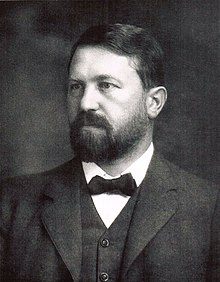
Theodor Boveri
German zoologist and comparative anatomist / From Wikipedia, the free encyclopedia
Dear Wikiwand AI, let's keep it short by simply answering these key questions:
Can you list the top facts and stats about Theodor Boveri?
Summarize this article for a 10 year old
SHOW ALL QUESTIONS
Theodor Heinrich Boveri (12 October 1862 – 15 October 1915) was a German zoologist, comparative anatomist and co-founder of modern cytology.[1] He was notable for the first hypothesis regarding cellular processes that cause cancer, and for describing chromatin diminution in nematodes.[2] His brother was industrialist Walter Boveri. Boveri was married to the American biologist Marcella O'Grady (1863–1950).[3] Their daughter Margret Boveri (1900–1975) became one of the best-known journalists in post-World War II Germany.[4]
Quick Facts Born, Died ...
Theodor Boveri | |
|---|---|
 | |
| Born | 12 October 1862 (1862-10-12) |
| Died | 15 October 1915 (1915-10-16) (aged 53) Würzburg, Kingdom of Bavaria |
| Nationality | German |
| Known for | Embryonic development Boveri–Sutton chromosome theory Centrosome Chromosome theory of cancer |
| Spouse | Marcella Boveri |
| Children | Margret Boveri |
| Scientific career | |
| Fields | Genetics, Cell biology |
Close